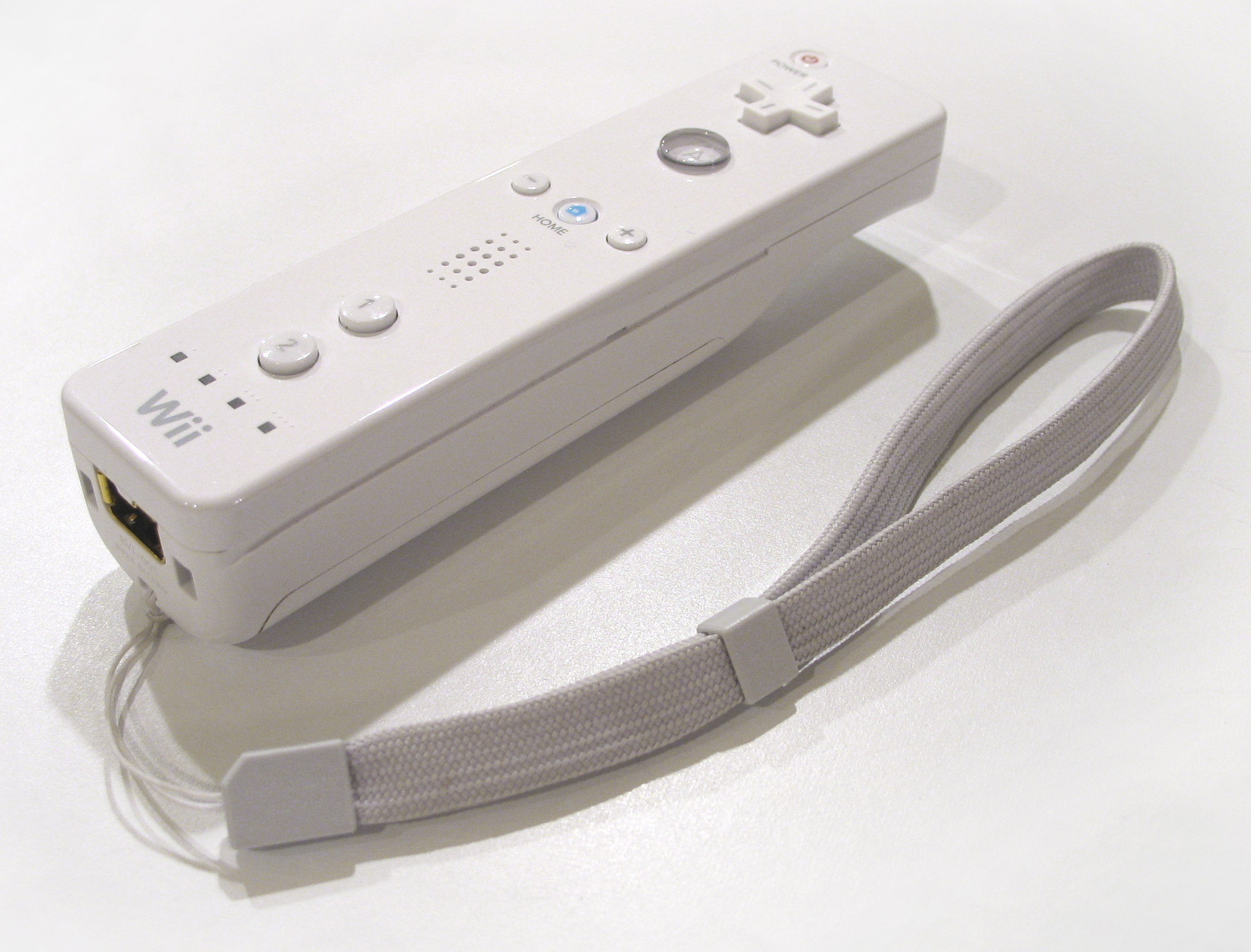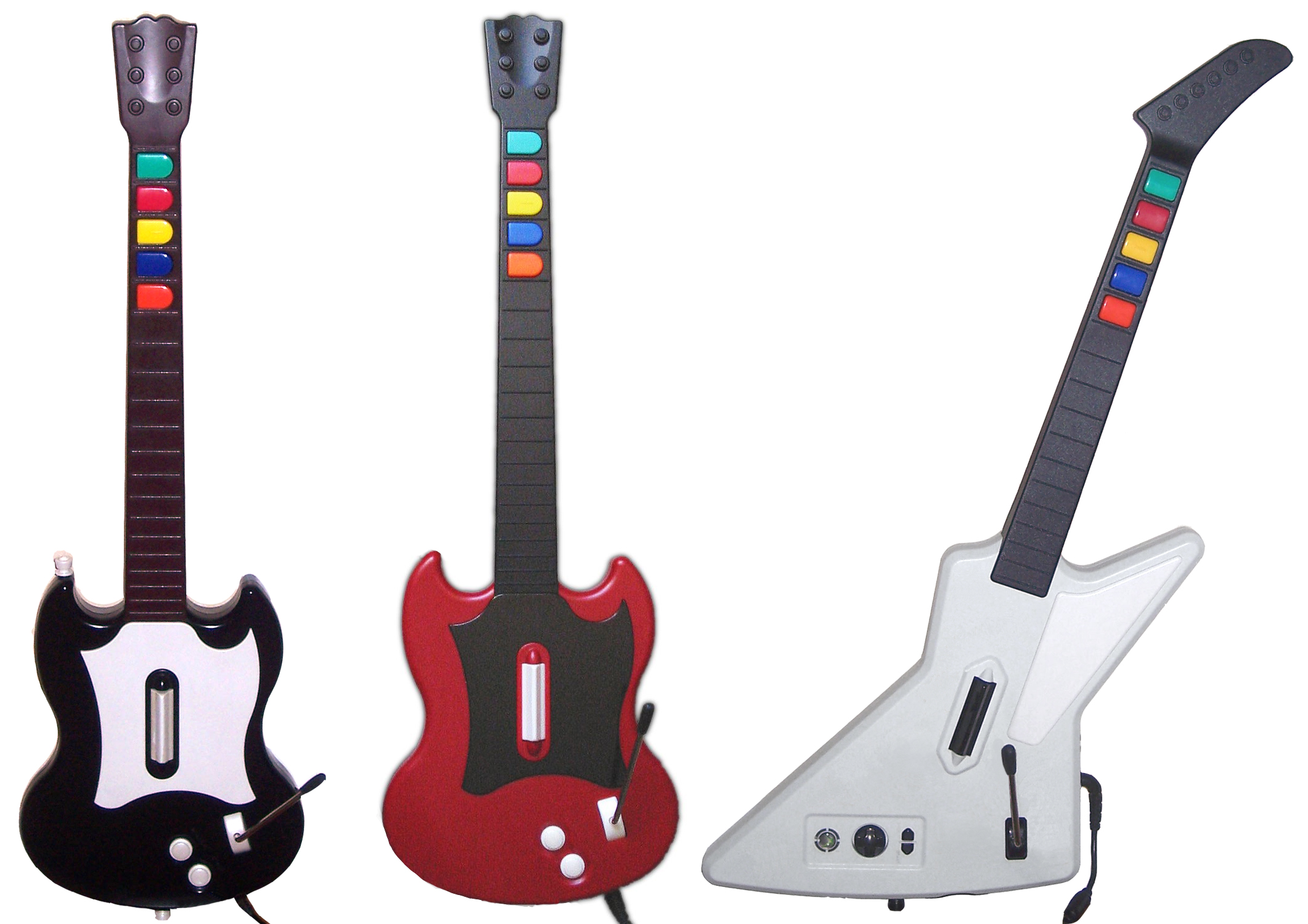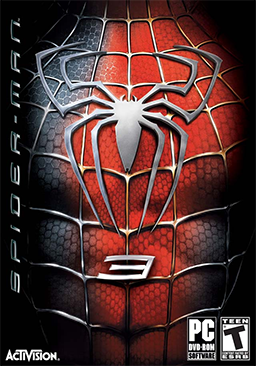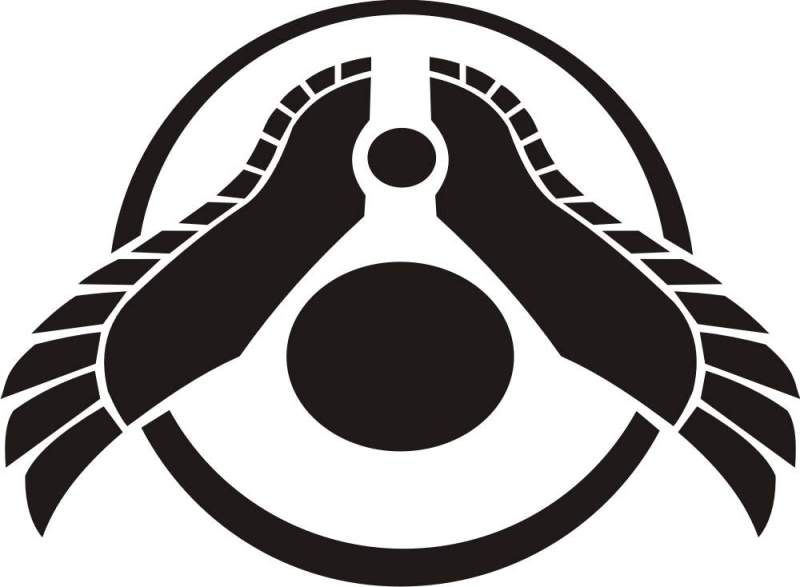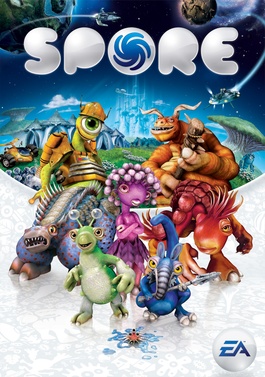For the most part, I think that gaming has gotten by with minimal amounts of censorship. I'll expand on my theory as to why shortly, but I think I can count the number of games that have been censored in some way on one hand.
Still, the thought has come up from time to time. Various agencies like to take potshots at video games as they are an emerging medium, so I sometimes sit back and think that such-and-such a game will get people angry and call for censoring. But as I said, I can't actively recall any real occurrence. At least, not here.
NihaoAs I mentioned previously,
World of Warcraft boasts a subscription base of around 11.5 million or so. A nice chunk of that base live in China. World of Warcraft has basically three "regions" for the game. There's the American version, which is available to, of course, the United States, Canada, Mexico and other areas south, as well as Australia and New Zealand. There's the European version, which, logically, serves England, France, Germany, Spain, and so on. Then there is the Chinese version. South Korea also plays, but I can't seem to figure out where they go. They may have their own server node as well.
Anyway, while WoW is just fine in most of these regions, it has hit some problems with China. You see, China has some laws or rules that prohibit certain things from appearing in games or movies.
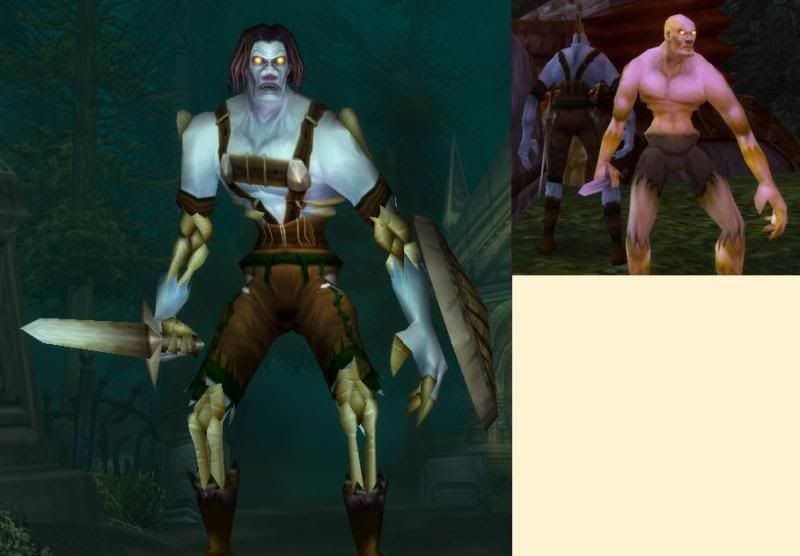
For example, I mentioned in my previous post about WoW that there is a race of
Undead (zombies, but sentient) in the game. You look reasonably human, but your skin is pallid and bones show at your joints and your spine is visible. Not so in the Chinese version. To get it passed, they actually redesigned the model to cover the bones. You can see a comparison to the right.
That's not the only change. There are numerous skeletal creatures that all grew flesh in the Chinese version. And another example, when your character dies and you resurrect, a skeleton of your character is left behind for a time. In China, this is replaced by a tombstone.
Reasonable Changes, Unreasonable FutureSo far, I suppose you could say it is reasonable. A little anal, perhaps, but reasonable. What the harm could be in not showing the skeletal joints, I don't know, but each country runs itself differently.
However,
The9, operator of WoW in China, has had some problems with attempts to bring the latest expansion,
Wrath of the Lich King, over. They've tried twice so far and both attempts have been shot down.

See, Wrath of the Lich King involves players bringing the battle to
Northrend, the northern lands in WoW's planet of
Azeroth, to battle the
Lich King. The Lich King commands legions of undead who are, naturally, in various states of undeath. This has caused quite a problem.
WoW Insider reported that the problems seem to stem from "Skeletal characters" and a "city raid." The city raid is a quest where you enter a phased version of one of the capital cities that has been attacked and basically remove the enemies from it. A fun, new quest that came with WotLK.
So far, The9 and Blizzard have jumped through a number of hoops to get WoW up and running in China. Though I think that what they have to change is daunting, they may very well do it, since there are so many fans in China.
Panda's Banned-aThere's one other issue I'd like to touch upon, since I'm talking about WoW and China and censoring problems. In WoW's lore, there's a race called the
Pandarens. They are pretty much what they sound like, a race of humanoid Pandas. They started out as a
bit of a joke (heard around 05:12) spawned by a piece of art created by WoW-artist
Samwise Didier. They've since ballooned into a full blown race. But they've never been seen in the game itself.
Rumors have floated around. There was the rumor that the new race for the Alliance in the first expansion pack would be the Pandaren but China had a problem and so it was changed to the
Draenei (I don't buy it). Some claimed that there is a law forbidding the virtual killing of a panda in a game, but that doesn't make sense either (I haven't found a law like that, and Pandarens
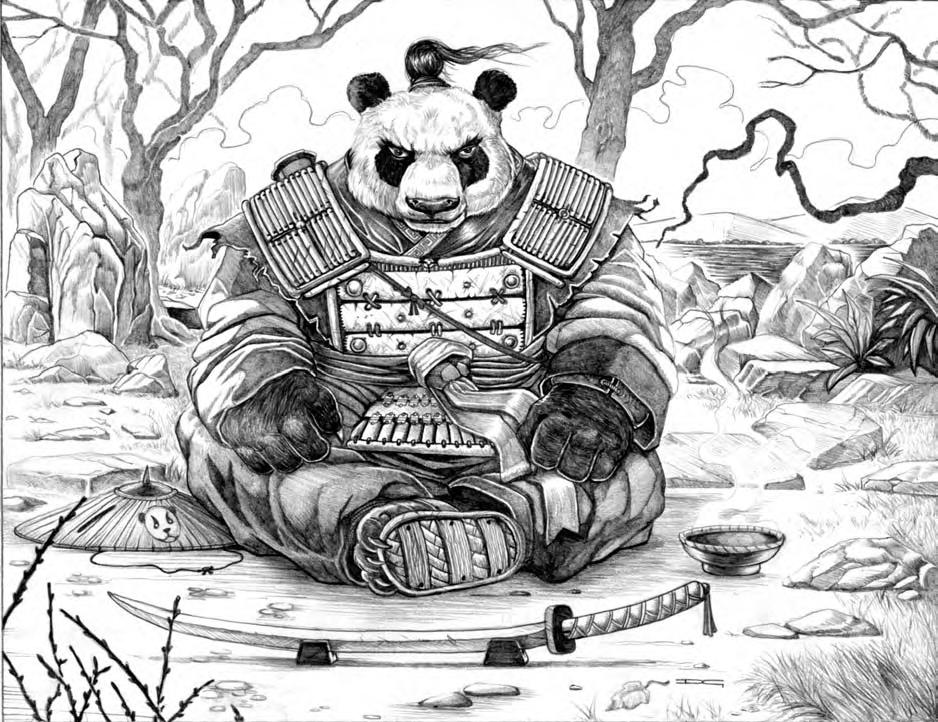
showed up, at least as
one unit, in the game Warcraft 3 which sold in China just fine).
There is only one theory that I heard that I could buy. The Pandarens are a mix of Chinese and Japanese cultures. Many are samurai and the like. Some, myself included, think that the Chinese, who have a bit of history with the Japanese, don't like seeing a cultural icon like the Panda dressed in Japanese garb.
At the last Blizzcon, developers did mention that there was some sort of problem, but did not elaborate. I think it was what I mentioned. We may never know, though.
TheorycraftingI think the reason why gaming has gone by mostly uncensored is because of the
ESRB rating system used. Though some think that the system doesn't work (it does, its just that parents don't seem to care that the game they're buying their 9 year old is
clearly rated M for Mature. You just can't idiot-proof everything, sadly), most businesses try and make use of it. I have actually been carded, CARDED(!), once when buying a mature game.
Anyway, the ratings go:

Pretty simple, right? Pretty much like the ratings for a movie or TV (hell, I'd say that TV's ratings are more confusing. TV-MA-SLV. What? TV-Mature...slave?). Makes you wonder how people just don't notice it, but that's a rant for another time.
Anyway, I have seen every one of those ratings in a store. Every one but AO. Adults Only is, from what I have read in a few gaming magazines (I'd link but unfortunately they have since closed shop and I cannot find it), a death sentence for a game. No store will sell it. This forces a developer to pare things down so it will fit.
So in a way, the industry regulates itself with censoring. Anything that may hit an AO rating will edit itself down to M so it could be sold.
Until we see a mass-selling AO game, though, this is just a theory.
3/14/09 - 9:05 pm: Just a small edit. Came across an article on WoW Insider that sent me to
this article. Apparently, if The9 can't get Wrath of the Lich King passed and up and running in China, they face bankruptcy. This may cause problems for WoW as a whole in China.
 places, though one must be careful for bootlegs and the like. A place like Gamestop will often buy back games, but be warned there, they do not buy back older games (I recall hearing recently they stopped buying back Playstation 2's) and often shortchange a person, or find some minuscule reason to not buy back a game or system.
places, though one must be careful for bootlegs and the like. A place like Gamestop will often buy back games, but be warned there, they do not buy back older games (I recall hearing recently they stopped buying back Playstation 2's) and often shortchange a person, or find some minuscule reason to not buy back a game or system. and it would appear that they even have games going back to the old Sega Genesis and Nintendo days. Excellent!
and it would appear that they even have games going back to the old Sega Genesis and Nintendo days. Excellent!
